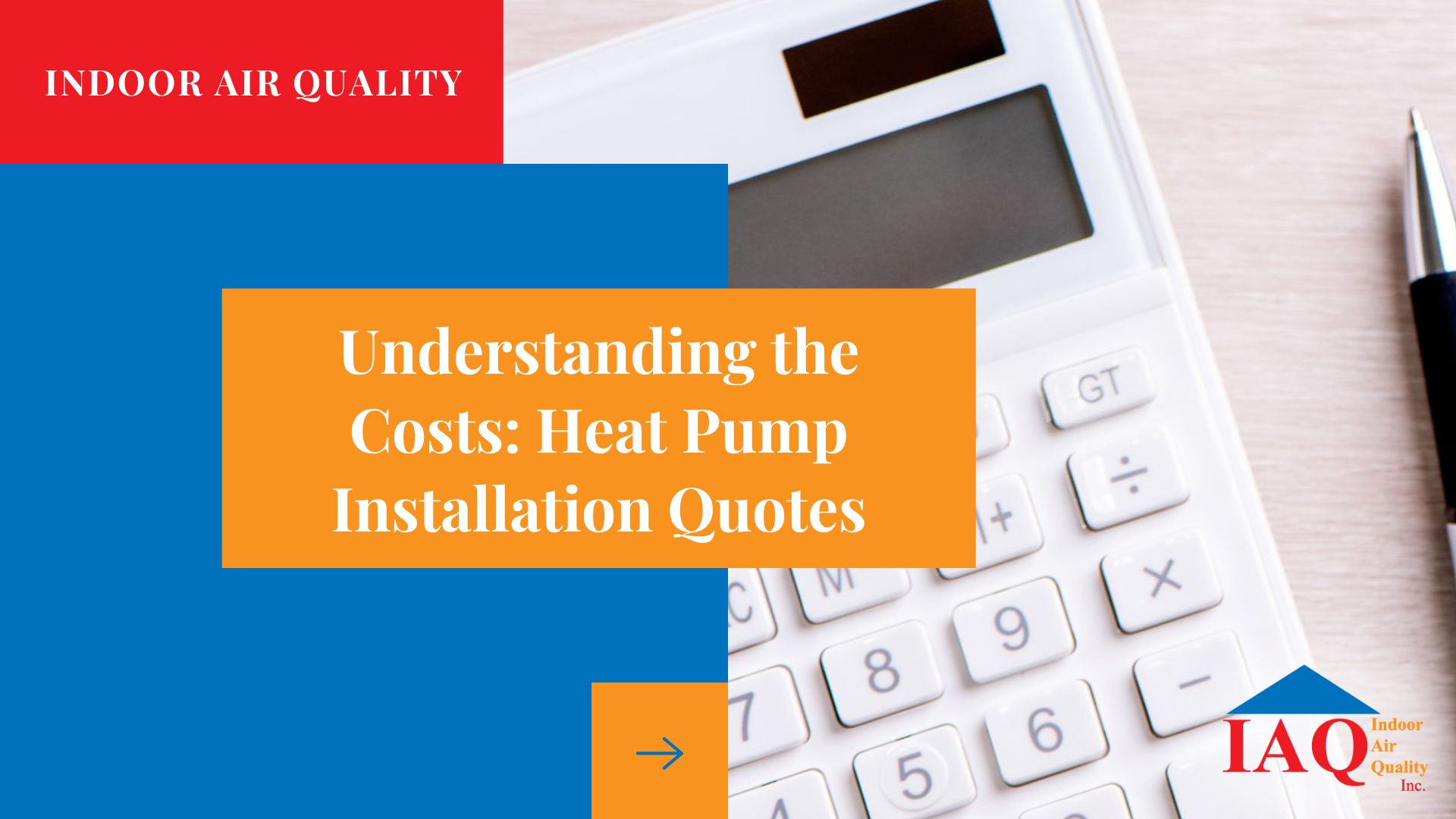Blog
Understanding the Costs: Heat Pump Installation Quotes
Heat pumps are one of the most energy-efficient systems on the market, meaning lower utility costs year-round. Additionally, many modern heat pumps qualify for tax credits or rebates, reducing the overall expense. When homeowners in Centennial, Aurora, Denver, and Highlands Ranch start exploring their options, one of the first considerations is cost.
In this blog, we’ll break down the factors that affect heat pump installation quotes and provide a case study.
What is a Heat Pump? A Quick Overview
Before diving into installation costs, let’s make sure you know what a heat pump is. A heat pump is a heating and cooling system that transfers heat instead of generating it. In winter, it pulls heat from the outdoor air and moves it indoors to warm your home. In summer, it reverses the process, removing heat and humidity from your indoor spaces to keep you cool.
Heat pumps are popular for their efficiency—especially in Denver’s moderate climate—where they provide reliable, cost-effective comfort year-round.
Factors That Influence Heat Pump Installation Costs
Heat pump installation costs can vary widely based on several factors. Here’s what to consider:
1. Type of Heat Pump
There are three main types of heat pumps: air-source, ground-source (geothermal), and ductless mini-splits. Air-source heat pumps are the most common and generally more affordable, while geothermal systems offer unmatched efficiency but have higher upfront installation costs. Ductless mini-splits are perfect for homes without ductwork or for targeted heating and cooling solutions in specific areas of your home.
2. Size and Capacity
It’s crucial to select the right-sized heat pump for your home. An undersized system won’t keep you comfortable, while an oversized unit may lead to energy waste and higher utility bills. When Indoor Air Quality, Inc. provides heat pump quotes, we calculate your home’s heating and cooling needs based on its square footage, insulation, and layout to recommend the perfect fit.
3. System Efficiency Ratings (SEER and HSPF)
Efficiency ratings, such as SEER (Seasonal Energy Efficiency Ratio) and HSPF (Heating Seasonal Performance Factor), impact both initial and long-term costs. High-efficiency systems may have a higher price tag upfront but deliver significant savings on your energy bills over time.
4. Installation Complexity
The design and layout of your home can impact installation costs. Homes with existing ductwork may require fewer modifications, while those with older systems or limited space might need more setup time and specialized equipment. At Indoor Air Quality, Inc., our technicians expertly evaluate your home and address any challenges efficiently to minimize disruption.
5. Rebates and Tax Credits
With available rebates and tax credits for heat pumps, there has never been a better time to install a heat pump
6. Professional Expertise
The skill and experience of your HVAC contractor matter greatly. At Indoor Air Quality, Inc., our NATE-certified technicians ensure the job is done correctly the first time, maintaining safety standards and optimizing your system’s performance.
What’s Included in a Heat Pump Installation Quote?
When you request a heat pump quote, you’ll want to understand exactly what’s included. By hiring a trusted HVAC company, you avoid hidden fees and receive a transparent breakdown of costs upfront.
Example Heat Pump System Costs in 2025 in the Denver Metro Area:
- The cost of purchasing and installing a Rheem Endeavor RD18AY 3-ton heat pump is $20,000 – $23,000.
- Rebates in this situation would be $6,750.
- Tax credits would be $2,000 from federal tax credits and $1,500 from state rebates.
- This system includes a back up furnace and thermostat.
- The total cost after rebates and tax credits is $9,750 – $12,750.
These costs will never be cheaper than they are today.
Choose Indoor Air Quality, Inc. for Heat Pump Installation
At Indoor Air Quality, Inc., we’ve been providing expert heating and cooling services to Denver residents for over two decades. When you trust us with your heat pump installation, you’ll benefit from our hands-on approach, attention to detail, and commitment to customer satisfaction.
Interested in more information about heat pumps? Since 2001, Indoor Air Quality, Inc. has provided heating and cooling services to homeowners in Centennial, Aurora, Denver, and Highlands Ranch (service area). Check out our customer testimonials, contact us, or use our online contact form for more information and a free quote.





